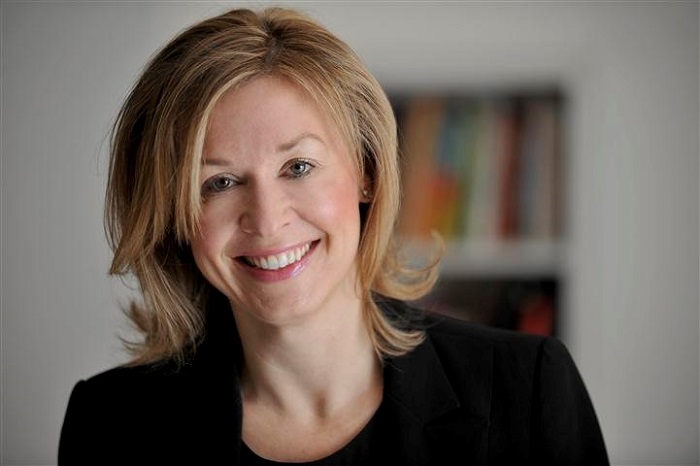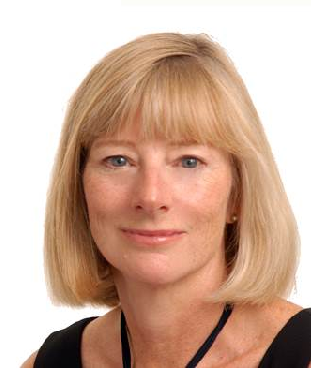Women in PR speak out against the gender pay gap
The recent CIPR state of pension report reignited the conversation about the inequalities women face in the sector. Despite PR being a female dominated industry research shows that there is a gender imbalance when it comes to women progressing to more senior roles. Here’s what women in PR had to say about this issue.
Mary Whenman: President, Women in PR (WPR)
“Survey after survey shows that the biggest gender pay gap is experienced by senior women over 40 years old. A pay gap of £16K-£22K in our industry is shameful. The reasons for this are numerous and complex. However, I firmly believe that if we are to change the ratio, companies and public sector organisations need to start measuring and publishing their gender pay figures. If we don’t measure it, we cannot monitor it, and we can’t change it. Many well-respected organisations, including PwC, Deloitte and EY publish their gender pay gap data and use the information to drive better business, close the gender pay gap and gain competitive advantage.
We also need a significant culture change to close the gender pay gap. I genuinely believe that some of my cohort of Gen Xers have been part of the problem. I’m hoping the millennial generation will be part of the solution. We found that 70% of respondents who completed the #prpaygap survey were millennials. One respondent said, “transparency is key to trust and knowing who is good and who isn’t will make choosing where to work a more transparent process.” We will see millennials use gender pay data when assessing potential employers. Furthermore, millennials are growing up and those born in 1982 are already moving into senior positions and soon they will be running UK plc and our major institutions. I hope that with their attitudes towards greater transparency, millennials will be instrumental in reducing the gender pay gap.
It does look as though there has been a positive change in the number of women reaching senior leadership roles within the UK PR industry which can only be welcomed. However, I’d like to see a deeper analysis of the data and whether this is masking a trend towards women either setting up their own agencies or establishing themselves as independent consultants. If more women are setting up their own agencies, this is encouraging as there are some great examples of independent agencies which are being well-run by women and are breeding grounds for future talent.
I’m also not convinced that the number of women reaching or not reaching leadership roles is down to the opportunities they are or are not given. I genuinely believe that the opportunities exist. However, there are still a lot of cultural barriers women face when they reach the top. If you want to work at a senior level, particularly in global agency or a major corporate, you need to have skin in the game. Many women get to a certain stage and think, “I’m not putting up with this anymore” and leave.
In terms of what needs to change in the industry there is not a one size fits all solution to achieving greater gender parity in leadership roles. Mentoring, coaching, sponsorship and a genuine commitment to flexible working – for both men and women, are just some of the ways in which we can support more women to rise and prevent the drain of talent at mid-career. The PR Week Mentoring scheme, run in conjunction with Women in PR, is crucial to developing future female talent and we have a good success rate in helping talented, mid-career women to secure senior roles or set up their own agencies.”
Angela Oakes: Co-Founder, Global Women in PR (GWPR)
“Indeed men and women in the PR industry are not being equally rewarded. The CIPR survey also reveals that when looking at seniority, the gender pay gap stands at £1,500 in relatively junior roles, yet widens significantly further up the career ladder, rising to £24,770 at board level.
And the worst offending organisations are revealed to be Consultancies, where there is a significantly higher pay gap between men and women’s salaries (£22,205), than there is for those working in-house (£6,555).
These findings provide further evidence that woman are disadvantaged at all levels and in different types of organisations in an industry where they dominate.
The UK government is aware that this gender pay gap issue is widespread across all industries and announced last year the introduction of mandatory gender pay gap reporting.
And the PR industry welcomes this move. The PRCA/WPR Gender Pay Gap 2015 survey revealed that the vast majority of PRs agree that publication of gender pay information will encourage employers to take actions that will help close the pay gap.
However, though well-intentioned, the government requirements on gender pay gap reporting is only for companies with more than 250 employees and as there are a huge number of small PR businesses, it is generally believed this will have a limited effect in our industry.
The reasons for the gender pay gap in PR are not that straightforward. There is an on-going issue with women in PR not reaching senior positions in the industry. At a junior level the profession is peopled by young women and yet they are not fulfilling their career potential. We appear to be losing these women from the PR industry in their mid-30s, at a time when they get married and start a family. We need to keep their careers going through middle management so that women have the opportunity to reach the most senior positions.
When I took a straw poll on sexism in the workplace amongst a small group of WPR (Women in PR) members there was little evidence of any sexism at all. I think the reason for this is that women dominate the PR industry. We currently outnumber men by 2:1 in this country. A man working in an office where the majority of his colleagues are women would have to be very brave (or foolish!) to behave in a sexist way. However, the real sexism issue we face today in PR is that of inequality of pay and lack of female presence in the boardroom, particularly in large organisations.
Essentially there is a need for the PR industry to change its culture and working practices. More flexibility on working hours is vital. Childcare is a big issue. I believe many women in their 30s make a deliberate decision to leave big companies altogether and decide to work as independent consultants. Moreover, many women I have spoken to at WPR networking events say that the big PR Consultancy environment is even less flexible than working in-house and they have no choice but to leave.
As long as 12 hour days in the office continue to be the norm – rather than the exception – it will always be incredibly difficult to manage the childcare situation, unless you have a partner who is willing and able to take on more responsibility.
One reason why so many PR women at this stage become freelancers, or start their own small PR business, is to allow themselves the flexibility they need to juggle family and work commitments.
Of course the internet does allows more flexible and mobile working, which benefits working mothers, but organisations need to recognize this and allow their employees more freedom to manage their work – life balance.
After all a number of management consultancy reports in recent years have acknowledged that companies perform better when they have a mix of men and women involved, as both sexes bring complementary skills to the boardroom table. In addition women need to help themselves by being more confident in their abilities and bold in their demands.
It has been well documented that a man is far more likely to put himself forward for a promotion beyond his abilities than a woman. In a way, this is a harder issue to tackle than that of flexible working hours, as this has to come from women themselves.
WPR in the UK has a very successful mentoring programme running with PR Week that is helping women in middle management develop their skills and confidence through support and guidance from senior women in the profession.
We strongly believe networking organisations like WPR provide important vehicles for PR women to meet in a non-competitive environment, support each other and help them build confidence in their own abilities. We must also recognize that the widely reported gender pay gap is not limited to the UK PR industry, but is also affecting women working in PR worldwide. This is one reason that we started Global Women in PR last year, as an umbrella organization for WPR networking groups; so we can work with other countries around the world to address these issues both for women and for the PR industry as a whole.”
Shelley Facius: Vice-President, Women in PR (WPR)
“Women now have over 25% representation in the boardrooms of FTSE 100 companies, but fewer than 10% hold executive positions. The UK is ahead of most of Europe and the U.S. However, fewer than 10% in executive roles does demonstrate there is a ceiling, glass or not.
I’ve heard and read a lot about men networking in a different, more effective way than women and whilst there may be truth to this, it doesn’t explain such a huge gap. We are in 2016 after all. My view is that women need the help of men to break down entrenched barriers and to navigate their way to the top. Women also need to help themselves by learning skills and gaining experience that are highly valued at executive board level.
I don’t think any industry is sexist, it is individuals within it who may exhibit sexist behaviour. What needs to change in the industry for the industry to break down the barriers that women face in PR?
I think the PR industry is ahead of many sectors when it comes to the barriers facing women, because it is majority female. However there needs to be transparency in gender pay amongst agencies and in-house teams to help eradicate the pay gap we see currently. The large, international agencies should be leading on this front.
I also think we need to see a cultural shift where attitudes as well as company policy support women who have children and return to work, or those who need to work more flexibly.
Lastly, women and men don’t tend to behave in the same way in the workplace and women’s particular strengths, talents, and attributes should be celebrated. The differences women bring should be encouraged, that way younger women in the industry will only gain in confidence.”
Abigail Kitcher: PR and Communications student, Southampton Solent University
“In my opinion the gender inequalities highlighted in the latest CIPR study is down to women going on maternity leave. It’s very sad to think this is a reason but that is a very likely possibility. I don’t really see there being any valid reason as to why there should be such a large pay gap.
Men are more likely to get senior roles because they don’t have to take 6 months off if they decide to have a child. A woman who has a family is perceived as a massive burden to most company’s and this is why men are more likely to be offered senior roles.
I have experienced no sexism in the PR industry, but I am still a student and haven’t experienced full-time PR work. My cohort at university is made up of mostly women which shows women are very powerful in the world of PR. I’ve also met some great female PR bloggers on Twitter too.
In terms of what needs to change in the industry people need to stop stereotyping each other based on gender, there are so many different women and men out there. As a woman myself, I am very dedicated and passionate about my job. If the sexism stopped and it was more about the quality of work rather than gender. I believe there would be even more women in power in PR let alone the rest of the work world.”







Leave a Comment